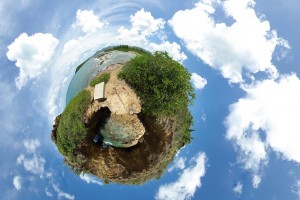Throughout the centuries of human existence, there have always been a variety of destructive incidences and events, in all the categories of human life. Diseases can ravage populations – plague has struck all over the world, reducing human life by the thousands or even millions. There are also natural events – earthquakes bring down infrastructure, volcanoes block the sky with poisonous ash, floods come crashing in, covering extensive sections of land, sometimes accompanied by tremendous winds and storms. People even wage battles between themselves. War is a gruesome part of our history. However, there is another cataclysmic event which had previously been hovering on our horizon but is now taking us on full force while we sit idly by – whether it be because of lack of knowledge, an uncaring attitude, an inability to act, or something else – climate change is upon us and it “is the most serious and the hardest to manage” (Davis, 1.1) environmental issue of our time. The previously mentioned disasters, as terrible and altering as they may be, tend to be events which a population can eventually bounce back from. Climate change is a sneakier opponent, one which we have mostly unknowingly brought up though our own actions and now are uncertain how to deal with, as we can not travel back down the road already traveled. The human population must learn from the events of the past to attempt to manage the events of the future.
Bibliography
Davis, Brandon. “Module 1.” The University of British Columbia – Global Environmental History, 2011. Web. 05 August 2011.

